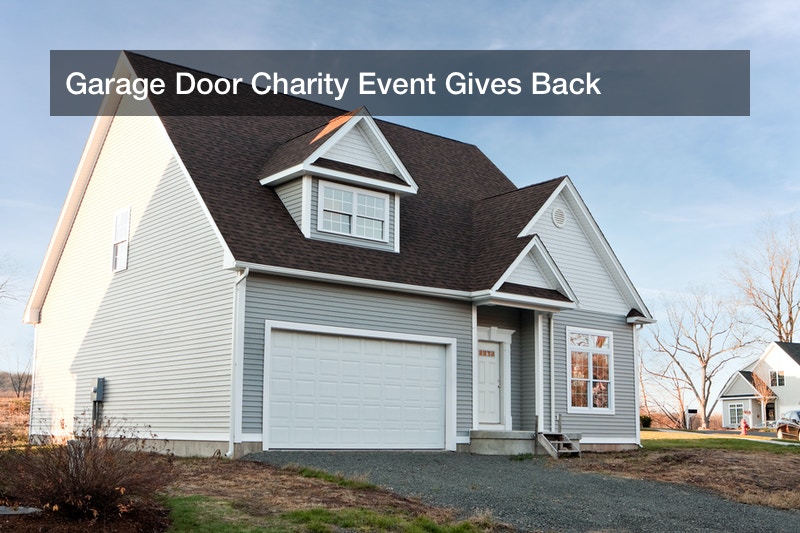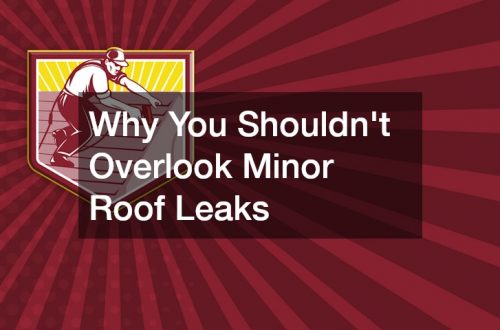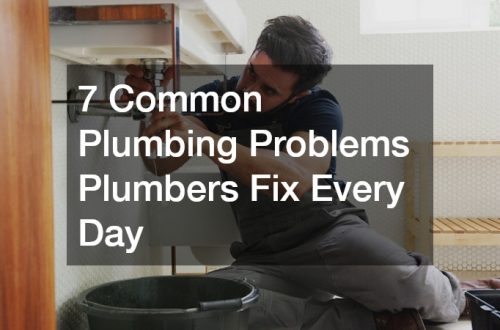
According to Scarborough research, around 53% of homeowners have completed some type of home improvement project in the last year. Many homeowners consider two things prior to deciding on a home improvement project: cost and added value. Some home improvement projects are simply cosmetic and can have an impressive effect on curb appeal, but others offer both visual appeal and added value.
If you’re considering making changes to your home, why not choose cost-efficient projects that add long-term value and benefits? Most homeowners delay home improvements until they’re absolutely necessary due to the perceived cost of undertaking such projects. While that’s completely understandable, being proactive can not only help you enjoy a more comfortable indoor environment but also to see an impressive return on investment for a number of home improvements. Replacing your windows, adding solar panels, and sealing any cracks or leaks in your HVAC systems are all improvements that will significantly impact your home’s efficiency.
Annual energy bills often cost homeowners thousands of dollars but with the following information about energy efficiency in your home, you’ll be able to reduce your energy costs while adding value to your home.
Why Should You be Concerned with Your Home’s Energy Efficiency?
Many individuals today are concerned with their carbon footprint, and with the threat of climate change, they should be. If you need an example of ways people are trying to decrease energy consumption, just think about all of the new cars for sale that are hybrid or recent advertising about high-efficiency home appliances. Energy efficiency is hardly a new buzzword, but that doesn’t mean that everyone fully understands the concept.
Energy efficiency in your home offers a number of benefits, and they aren’t just benefits for your home. Homeowners that increase the energy efficiency of their residence not only get multiple immediate benefits, but they also help improve the planet.
Here’s the deal: When you consume less energy, you need less fuel. Why is that important?
Fossil fuels have two major negative impacts on the environment. First, because they need to be drilled and mined, natural habitats are disrupted. Second, when burned, fossil fuels release noxious gasses that not only pollute the air, but that also have a significant impact on climate change. Using more energy efficient products and materials in your home will help you and your family reduce your carbon footprint. The number one reason most homeowners are interested in energy efficiency is the cost benefit. Consuming large amounts of energy equals a lot of money spent on energy, so the less you consume, the less you pay on your energy bills. With all of the energy efficiency initiatives, like solar power and hybrid cars, you can make improvements to your home and way of life that will help you save money month after month.
1. Hire a Professional Inspector

Talking about increasing energy efficiency in your home is all well and good, but do you actually know where to begin? With seemingly endless options for innovative products and smart home technologies, it may feel a bit daunting and overwhelming to know where to begin making changes. That’s why you should hire a professional inspector.
Many companies, including some large energy corporations, offer a service known as a home energy audit. During a home energy audit, a professional inspector will visit your home and carefully assess its current level of efficiency.
A home energy audit is a great way to understand what the current level of efficiency is in your home and what you can do to make improvements that can save you money. Commonly, a home energy audit will consist of several steps, including:
- Exterior: The first stage of your home energy audit will begin with a close look at the exterior of your home. Your inspector will look at things like your walls, windows, and eaves, checking for any sign of leaks or cracks
- Interior: If you have an attic, your energy auditor will want to inspect it to ensure proper insulation and to assess the level of air leakage that may be happening. Additionally, your professional inspector will want to perform a check on all of your electrical outlets. An explosion-proof wire seal can be a helpful way to reduce energy loss.
- HVAC System: Most home energy audits include an inspection of your home’s furnace and cooling system. Air leakage is a major cause of energy loss, and it can also affect the quality of your indoor air. You can also hire an air quality consultant to determine whether there are efficient ways to improve your indoor air quality. With the results of your audit, you’ll have a better idea of what specific improvements will add to the energy efficiency in your home.
2. Check Your Home’s Systems for Leaks and Cracks

How old are your heating and cooling systems? Oftentimes, homeowners won’t make a major purchase like a new furnace unless they absolutely have to. However, if your current system is outdated and inefficient, it could be contributing to your high energy costs.
Within the last few decades, huge advancements have been made in residential air conditioning and heating systems. In general, heating systems that are between 15 and 20 years old and cooling systems more than a decade old are considered inefficient. Replacing outdated systems is a great way to instantly boost energy efficiency in your home as well as increase your indoor comfort.
If you don’t need to replace your furnace or central air conditioning, you still can improve the energy efficiency of your systems. Carefully inspect your units, looking for any leaks or cracks that may need fixing. A professional home energy audit, as mentioned above, will likely include an inspection of heating and cooling systems, so if you choose to hire a professional, they’ll look for areas of weakness for you.
3. Make Any Necessary Repairs and Adjustments

Once you know what areas or systems in your home need work, you can get started on making any necessary repairs. While some things that need your attention will be quite apparent, there are other things that can be more subtle. For instance, if your basement flooded and you didn’t get the proper water damage repair services, you could risk that damage becoming more severe and leading to significant issues like the weakening of your home’s structural integrity.
If you’ve experienced water damage, it’s important to call qualified professionals as soon as you’re able. Proper basement sealing is a great way to improve the energy efficiency in your home and protect against any future moisture intrusion.
From the bottom of your home to the very top, there are measures you can take to improve its efficiency. Your attic is another place you want to double-check. Make sure it’s fully and properly insulated to prevent heat from escaping during winter and seeping in during the summer.
If you know you don’t need to replace your heating or cooling system, take time to seal any potential leaks or cracks to improve its performance. Simply sealing cracks, gaps, and leaks in your home can help you save up to 10% on your energy bills. There are a number of small and inexpensive things and behaviors you can adjust to increase the energy efficiency in your home. Some of these include:
- Use natural light whenever possible, and replace old light bulbs with long-lasting LED bulbs.
- Only turn on electronics when you need them. You’d be surprised at how much energy you can save by simply keeping your computer, printer, or other devices off until you want to use them. Also, remember to unplug items that aren’t in use.
- Consider washing your clothes in cold water rather than hot.
- Lighting, on average, comprises 12% of an energy bill. With that in mind, remember to turn off lights when you are not using a room.
- Don’t make your heating or cooling system work any harder than it needs to. Wear appropriate clothing for the weather, use ceiling fans during the summer, and lower blinds to help keep your home cool when it’s hot outside.
4. Don’t Let Hot or Cold Air Escape

When it comes to increasing the energy efficiency in your home, one of the best and most cost-effective measures is window replacement. If your windows are outdated and inefficient, you could very well be throwing money out the window. In addition to costing you money in the form of higher energy bills, air leaks have a significant impact on your indoor comfort. Energy efficient windows help you regulate the temperature in your home for a more comfortable environment, and they also impact noise pollution so you’ll be able to enjoy more peace and quiet.
A qualified home improvement company will help you decide what type of windows best suit your home and your energy needs. Energy efficient windows are available in a variety of styles, so you can be sure you’ll find one that blends seamlessly with your home’s architectural style. Several things to look for in an energy efficient window are double or triple pane options, argon gas filling, increased insulation, and superior weather seals.
Your windows are a crucial part of the energy efficiency in your home and help to reduce your energy bills, but these aren’t the only things to consider. Whether you use your garage as a game room, a guest bedroom, or a place to store household items, you should consider eco-friendly garage door services. With the right garage door, you’ll have the ability to better regulate the temperature in your garage for added energy efficiency in your home.
5. Consider Installing Solar Panels

More than just protection from inclement weather, your roof plays a major role in the energy efficiency in your home. Missing shingles, besides looking unpleasant and opening your home to environmental threats, lead to significant energy loss.
There are a number of roofing materials that can help you add to the energy efficiency in your home. Asphalt shingles, tile roofing, and metal roofing are just three examples of materials that offer improved efficiency. Not sure what type of roofing would be best for your home? An experienced roofing company will be able to help you select the appropriate materials for your needs.
Another thing a roofing company can do to help you improve your home’s efficiency is to install solar panels. Even if you do not live in a super sunny spot, like Florida or California, solar panels still draw energy on cloudy days. Diffused and indirect sunlight still provide power to your home.
Solar power is a completely renewable energy source, meaning that you’ll significantly reduce your carbon footprint. Choosing clean energy does more than improving the environment; it also gives you access to a number of generous tax breaks and rebates. In fact, many people qualify for a federal income tax credit of 30% of the total cost of your solar panel system. That means you’ll see a return on your investment almost immediately. Also, depending on where you live, you will have access to various state and local tax credits as an incentive to rely on solar power rather than traditional energy sources.
When it comes to increasing energy efficiency in your home, there is an overwhelming number of options. You don’t have to start by installing a solar panel roofing system or replacing all of your windows. You can begin right now simply by doing things like remembering to turn off lights when you leave a room and keeping electronics unplugged until you need to use them. Even replacing your light bulbs and adding weather stripping to your current windows are ways that you can easily and affordably improve the energy efficiency of your home. If you’re interested in reducing your carbon footprint, why not hire a professional to perform a home energy audit? At the very least, you will be given information about what areas of your home could use improvement. Energy efficiency in your home is largely under your control, and you can save significant money by taking the time to invest in various areas and systems of your home.




